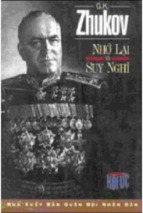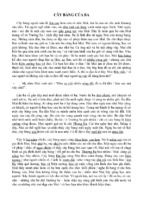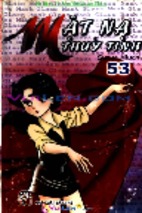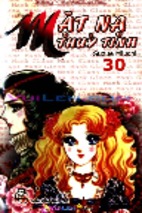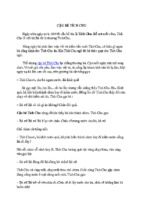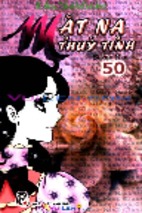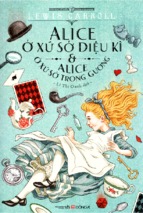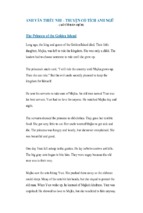Harry Potter and the Half-Blood Prince
HARRY POTTER
AND THE HALF-BLOOD PRINCE
BY
J.K. ROWLING
CHAPTER ONE
THE OTHER MINISTER
It was nearing midnight and the Prime Minister was sitting alone in his office, reading a long
memo that was slipping through his brain without leaving the slightest trace of meaning behind. He
was waiting for a call from the President of a far distant country, and between wondering when the
wretched man would telephone, and trying to suppress unpleasant memories of what had been a
very long, tiring, and difficult week, there was not much space in his head for anything else. The
more he attempted to focus on the print on the page before him, the more clearly the Prime
Minister could see the gloating face of one of his political opponents. This particular opponent had
appeared on the news that very day, not only to enumerate all the terrible things that had happened
in the last week (as though anyone needed reminding) but also to explain why each and every one of
them was the government’s fault.
The Prime Minister’s pulse quickened at the very thought of these accusations, for they were
neither fair nor true. How on earth was his government supposed to have stopped that bridge
collapsing? It was outrageous for anybody to suggest that they were not spending enough on bridges.
The bridge was fewer than ten years old, and the best experts were at a loss to explain why it had
snapped cleanly in two, sending a dozen cars into the watery depths of the river below. And how
dare anyone suggest that it was lack of policemen that had resulted in those two very nasty and wellpublicized murders? Or that the government should have somehow foreseen the freak hurricane in
the West Country that had caused so much damage to both people and property? And was it his
fault that one of his Junior Ministers, Herbert Chorley, had chosen this week to act so peculiarly that
he was now going to be spending a lot more time with his family?
“A grim mood has gripped the country,” the opponent had concluded, barely concealing his own
broad grin.
And unfortunately, this was perfectly true. The Prime Minister felt it himself; people really did
seem more miserable than usual. Even the weather was dismal; all this chilly mist in the middle of
July…It wasn’t right, it wasn’t normal…
He turned over the second page of the memo, saw how much longer it went on, and gave it up
as a bad job. Stretching his arms above his head he looked around his office mournfully. It was a
handsome room, with a fine marble fireplace facing the long sash windows, firmly closed against the
unseasonable chill. With a slight shiver, the Prime Minister got up and moved over to the window,
looking out at the thin mist that was pressing itself against the glass. It was then, as he stood with his
back to the room, that he heard a soft cough behind him.
He froze, nose to nose with his own scared-looking reflection in the dark glass. He knew that
cough. He had heard it before. He turned very slowly to face the empty room.
“Hello?” he said, trying to sound braver than he felt.
For a brief moment he allowed himself the impossible hope that nobody would answer him.
However, a voice responded at once, a crisp, decisive voice that sounded as though it were reading a
prepared statement. It was coming — as the Prime Minister had known at the first cough — from
the froglike little man wearing a long silver wig who was depicted in a small, dirty oil painting in the
far corner of the room.
“To the Prime Minister of Muggles. Urgent we meet. Kindly respond immediately. Sincerely,
Fudge.”
The man in the painting looked inquiringly at the Prime Minister.
“Er,” said the Prime Minister, “listen…It’s not a very good time for me…I’m waiting for a
telephone call, you see…from the President of —”
“That can be rearranged,” said the portrait at once. The Prime Minister’s heart sank. He had
been afraid of that.
“But I really was rather hoping to speak —”
“We shall arrange for the President to forget to call. He will telephone tomorrow night instead,”
said the little man. “Kindly respond immediately to Mr. Fudge.”
“I…oh…very well,” said the Prime Minister weakly. “Yes, I’ll see Fudge.”
He hurried back to his desk, straightening his tie as he went. He had barely resumed his seat, and
arranged his face into what he hoped was a relaxed and unfazed expression, when bright green flames
burst into life in the empty grate beneath his marble mantelpiece. He watched, trying not to betray a
flicker of surprise or alarm, as a portly man appeared within the flames, spinning as fast as a top.
Seconds later, he had climbed out onto a rather fine antique rug, brushing ash from the sleeves of his
long pin-striped cloak, a lime-green bowler hat in his hand.
“Ah…Prime Minister,” said Cornelius Fudge, striding forward with his hand outstretched.
“Good to see you again.”
The Prime Minister could not honestly return this compliment, so said nothing at all. He was
not remotely pleased to see Fudge, whose occasional appearances, apart from being downright
alarming in themselves, generally meant that he was about to hear some very bad news. Furthermore,
Fudge was looking distinctly careworn. He was thinner, balder, and grayer, and his face had a
crumpled look. The Prime Minister had seen that kind of look in politicians before, and it never
boded well.
“How can I help you?” he said, shaking Fudge’s hand very briefly and gesturing toward the
hardest of the chairs in front of the desk.
“Difficult to know where to begin,” muttered Fudge, pulling up the chair, sitting down, and
placing his green bowler upon his knees. “What a week, what a week…”
“Had a bad one too, have you?” asked the Prime Minister stiffly, hoping to convey by this that
he had quite enough on his plate already without any extra helpings from Fudge.
“Yes, of course,” said Fudge, rubbing his eyes wearily and looking morosely at the Prime
Minister. “I’ve been having the same week you have, Prime Minister. The Brockdale Bridge…the
Bones and Vance murders…not to mention the ruckus in the West Country…”
“You — er — your — I mean to say, some of your people were — were involved in those —
those things, were they?”
Fudge fixed the Prime Minister with a rather stern look. “Of course they were,” he said,
“Surely you’ve realized what’s going on?”
“I…” hesitated the Prime Minister.
It was precisely this sort of behavior that made him dislike Fudge’s visits so much. He was, after
all, the Prime Minister and did not appreciate being made to feel like an ignorant schoolboy. But of
course, it had been like this from his very first meeting with Fudge on his very first evening as Prime
Minister. He remembered it as though it were yesterday and knew it would haunt him until his
dying day.
He had been standing alone in this very office, savoring the triumph that was his after so many
years of dreaming and scheming, when he had heard a cough behind him, just like tonight, and
turned to find that ugly little portrait talking to him, announcing that the Minister of Magic was
about to arrive and introduce himself
Naturally, he had thought that the long campaign and the strain of the election had caused him
to go mad. He had been utterly terrified to find a portrait talking to him, though this had been
nothing to how he felt when a self-proclaimed wizard had bounced out of the fireplace and shaken
his hand. He had remained speechless throughout Fudge’s kindly explanation that there were
witches and wizards still living in secret all over the world and his reassurances that he was not to
bother his head about them as the Ministry of Magic took responsibility for the whole Wizarding
community and prevented the non-magical population from getting wind of them. It was, said
Fudge, a difficult job that encompassed everything from regulations on responsible use of
broomsticks to keeping the dragon population under control (the Prime Minister remembered
clutching the desk for support at this point). Fudge had then patted the shoulder of the stilldumbstruck Prime Minister in a fatherly sort of way.
“Not to worry,” he had said, “it’s odds-on you’ll never see me again. I’ll only bother you if
there’s something really serious going on our end, something that’s likely to affect the Muggles —
the non-magical population, I should say. Otherwise, it’s live and let live. And I must say, you’re
taking it a lot better than your predecessor. He tried to throw me out the window, thought I was a
hoax planned by the opposition.”
At this, the Prime Minister had found his voice at last. “You’re — you’re not a hoax, then?”
It had been his last, desperate hope.
“No,” said Fudge gently. “No, I’m afraid I’m not. Look.”
And he had turned the Prime Minister’s teacup into a gerbil.
“But,” said the Prime Minister breathlessly, watching his teacup chewing on the corner of his
next speech, “but why — why has nobody told me —?”
“The Minister of Magic only reveals him — or herself to the Muggle Prime Minister of the day,”
said Fudge, poking his wand back inside his jacket. “We find it the best way to maintain secrecy.”
“But then,” bleated the Prime Minister, “why hasn’t a former Prime Minister warned me -?”
At this, Fudge had actually laughed.
“My dear Prime Minister, are you ever going to tell anybody?”
Still chortling, Fudge had thrown some powder into the fireplace, stepped into the emerald
flames, and vanished with a whooshing sound. The Prime Minister had stood there, quite
motionless, and realized that he would never, as long as he lived, dare mention this encounter to a
living soul, for who in the wide world would believe him?
The shock had taken a little while to wear off. For a time, he had tried to convince himself that
Fudge had indeed been a hallucination brought on by lack of sleep during his grueling election
campaign. In a vain attempt to rid himself of all reminders of this uncomfortable encounter, he had
given the gerbil to his delighted niece and instructed his private secretary to take down the portrait of
the ugly little man who had announced Fudge’s arrival. To the Prime Minister’s dismay, however,
the portrait had proved impossible to remove. When several carpenters, a builder or two, an art
historian, and the Chancellor of the Exchequer had all tried unsuccessfully to pry it from the wall,
the Prime Minister had abandoned the attempt and simply resolved to hope that the thing remained
motionless and silent for the rest of his term in office. Occasionally he could have sworn he saw out
of the corner of his eye the occupant of the painting yawning, or else scratching his nose; even, once
or twice, simply walking out of his frame and leaving nothing but a stretch of muddy-brown canvas
behind. However, he had trained himself not to look at the picture very much, and always to tell
himself firmly that his eyes were playing tricks on him when anything like this happened.
Then, three years ago, on a night very like tonight, the Prime Minister had been alone in his
office when the portrait had once again announced the imminent arrival of Fudge, who had burst
out of the fireplace, sopping wet and in a state of considerable panic. Before the Prime Minister
could ask why he was dripping all over the Axminster, Fudge had started ranting about a prison the
Prime Minister had never heard of, a man named “Serious” Black, something that sounded like
“Hogwarts,” and a boy called Harry Potter, none of which made the remotest sense to the Prime
Minister.
“…I’ve just come from Azkaban,” Fudge had panted, tipping a large amount of water out of the
rim of his bowler hat into his pocket. “Middle of the North Sea, you know, nasty flight…the
dementors are in uproar”— he shuddered — “they’ve never had a breakout before. Anyway, I had to
come to you, Prime Minister. Black’s a known Muggle killer and may be planning to rejoin YouKnow-Who…But of course, you don’t even know who You-Know-Who is!” He had gazed
hopelessly at the Prime Minister for a moment, then said, “Well, sit down, sit down, I’d better fill
you in…Have a whiskey…”
The Prime Minister rather resented being told to sit down in his own office, let alone offered his
own whiskey, but he sat nevertheless. Fudge pulled out his wand, conjured two large glasses full of
amber liquid out of thin air, pushed one of them into the Prime Minister’s hand, and drew up a
chair.
Fudge had talked for more than an hour. At one point, he had refused to say a certain name
aloud and wrote it instead on a piece of parchment, which he had thrust into the Prime Minister’s
whiskey-free hand. When at last Fudge had stood up to leave, the Prime Minister had stood up too.
“So you think that…” He had squinted down at the name in his left hand. “Lord Vol —”
“He-Who-Must-Not-Be-Named!” snarled Fudge.
“I’m sorry…You think that He-Who-Must-Not-Be-Named is still alive, then?”
“Well, Dumbledore says he is,” said Fudge, as he had fastened his pin-striped cloak under his
chin, “but we’ve never found him. If you ask me, he’s not dangerous unless he’s got support, so it’s
Black we ought to be worrying about. You’ll put out that warning, then? Excellent. Well, I hope we
don’t see each other again, Prime Minister! Good night.”
But they had seen each other again. Less than a year later a harassed-looking Fudge had appeared
out of thin air in the cabinet room to inform the Prime Minister that there had been a spot of bother
at the Kwidditch (or that was what it had sounded like) World Cup and that several Muggles had
been “involved,” but that the Prime Minister was not to worry, the fact that You-Know-Who’s Mark
had been seen again meant nothing; Fudge was sure it was an isolated incident, and the Muggle
Liaison Office was dealing with all memory modifications as they spoke.
“Oh, and I almost forgot,” Fudge had added. “We’re importing three foreign dragons and a
sphinx for the Triwizard Tournament, quite routine, but the Department for the Regulation and
Control of Magical Creatures tells me that it’s down in the rule book that we have to notify you if
we’re bringing highly dangerous creatures into the country.”
“I — what — dragons?” spluttered the Prime Minister.
“Yes, three,” said Fudge. “And a sphinx. Well, good day to you.”
The Prime Minister had hoped beyond hope that dragons and sphinxes would be the worst of it,
but no. Less than two years later, Fudge had erupted out of the fire yet again, this time with the
news that there had been a mass breakout from Azkaban.
“A mass breakout?” repeated the Prime Minister hoarsely.
“No need to worry, no need to worry!” shouted Fudge, already with one foot in the flames.
“We’ll have them rounded up in no time — just thought you ought to know!”
And before the Prime Minister could shout, “Now, wait just one moment!” Fudge had vanished
in a shower of green sparks.
Whatever the press and the opposition might say, the Prime Minister was not a foolish man. It
had not escaped his notice that, despite Fudge’s assurances at their first meeting, they were now
seeing rather a lot of each other, nor that Fudge was becoming more flustered with each visit. Little
though he liked to think about the Minister of Magic (or, as he always called Fudge in his head, the
Other Minister), the Prime Minister could not help but fear that the next time Fudge appeared it
would be with graver news still. The sight, therefore, of Fudge stepping out of the fire once more,
looking disheveled and fretful and sternly surprised that the Prime Minister did not know exactly
why he was there, was about the worst thing that had happened in the course of this extremely
gloomy week.
“How should I know what’s going on in the — er — Wizarding community?” snapped the
Prime Minister now. “I have a country to run and quite enough concerns at the moment without—”
“We have the same concerns,” Fudge interrupted. “The Brockdale Bridge didn’t wear out. That
wasn’t really a hurricane. Those murders were not the work of Muggles. And Herbert Chorley’s
family would be safer without him. We are currently making arrangements to have him transferred
to St. Mungo’s Hospital for Magical Maladies and Injuries. The move should be affected tonight.”
“What do you…I’m afraid I…What?” blustered the Prime Minister.
Fudge took a great, deep breath and said, “Prime Minister, I am very sorry to have to tell you
that he’s back. He-Who-Must-Not-Be-Named is back.”
“Back? When you say ‘back’…he’s alive? I mean —”
The Prime Minister groped in his memory for the details of that horrible conversation of three
years previously, when Fudge had told him about the wizard who was feared above all others, the
wizard who had committed a thousand terrible crimes before his mysterious disappearance fifteen
years earlier.
“Yes, alive,” said Fudge. “That is — I don’t know — is a man alive if he can’t be killed? I don’t
really understand it, and Dumbledore won’t explain properly — but anyway, he’s certainly got a
body and is walking and talking and killing, so I suppose, for the purposes of our discussion, yes,
he’s alive.”
The Prime Minister did not know what to say to this, but a persistent habit of wishing to appear
well-informed on any subject that came up made him cast around for any details he could remember
of their previous conversations.
“Is Serious Black with — er — He-Who-Must-Not-Be-Named?”
“Black? Black?” said Fudge distractedly, turning his bowler rapidly in his fingers. “Sirius Black,
you mean? Merlin’s beard, no. Black’s dead. Turns out we were — er — mistaken about Black. He
was innocent after all. And he wasn’t in league with He-Who-Must-Not-Be-Named either. I mean,”
he added defensively, spinning the bowler hat still faster, “all the evidence pointed — we had more
than fifty eyewitnesses — but anyway, as I say, he’s dead. Murdered, as a matter of fact. On Ministry
of Magic premises. There’s going to be an inquiry, actually…”
To his great surprise, the Prime Minister felt a fleeting stab of pity for Fudge at this point. It
was, however, eclipsed almost immediately by a glow of smugness at the thought that, deficient
though he himself might be in the area of materializing out of fireplaces, there had never been a
murder in any of the government departments under his charge…Not yet, anyway…
While the Prime Minister surreptitiously touched the wood of his desk, Fudge continued, “But
Blacks by-the-by now. The point is, we’re at war, Prime Minister, and steps must be taken.”
“At war?” repeated the Prime Minister nervously. “Surely that’s a little bit of an overstatement?”
“He-Who-Must-Not-Be-Named has now been joined by those of his followers who broke out of
Azkaban in January,” said Fudge, speaking more and more rapidly and twirling his bowler so fast
that it was a lime-green blur. “Since they have moved into the open, they have been wreaking havoc.
The Brockdale Bridge — he did it, Prime Minister, he threatened a mass Muggle killing unless I
stood aside for him and —”
“Good grief, so it’s your fault those people were killed and I’m having to answer questions about
rusted rigging and corroded expansion joints and I don’t know what else!” said the Prime Minister
furiously.
“My fault!” said Fudge, coloring up. “Are you saying you would have caved in to blackmail like
that?”
“Maybe not,” said the Prime Minister, standing up and striding about the room, “but I would
have put all my efforts into catching the blackmailer before he committed any such atrocity!”
“Do you really think I wasn’t already making every effort?” demanded Fudge heatedly. “Every
Auror in the Ministry was — and is — trying to find him and round up his followers, but we
happen to be talking about one of the most powerful wizards of all time, a wizard who has eluded
capture for almost three decades!”
“So I suppose you’re going to tell me he caused the hurricane in the West Country too?” said the
Prime Minister, his temper rising with every pace he took. It was infuriating to discover the reason
for all these terrible disasters and not to be able to tell the public, almost worse than it being the
government’s fault after all.
“That was no hurricane,” said Fudge miserably.
“Excuse me!” barked the Prime Minister, now positively stamping up and down. “Trees
uprooted, roofs ripped off, lampposts bent, horrible injuries —”
“It was the Death Eaters,” said Fudge. “He-Who-Must-Not-Be-Named’s followers. And…and
we suspect giant involvement.”
The Prime Minister stopped in his tracks as though he had hit an invisible wall. “What
involvement?”
Fudge grimaced. “He used giants last time, when he wanted to go for the grand effect,” he said.
“The Office of Misinformation has been working around the clock, we’ve had teams of Obliviators
out trying to modify the memories of all the Muggles who saw what really happened, we’ve got most
of the Department for the Regulation and Control of Magical Creatures running around Somerset,
but we can’t find the giant — it’s been a disaster.”
“You don’t say!” said the Prime Minister furiously.
“I won’t deny that morale is pretty low at the Ministry,” said Fudge. “What with all that, and
then losing Amelia Bones.”
“Losing who?”
“Amelia Bones. Head of the Department of Magical Law Enforcement. We think He-WhoMust-Not-Be-Named may have murdered her in person, because she was a very gifted witch and —
and all the evidence was that she put up a real fight.”
Fudge cleared his throat and, with an effort, it seemed, stopped spinning his bowler hat.
“But that murder was in the newspapers,” said the Prime Minister, momentarily diverted from
his anger. “Our newspapers. Amelia Bones…it just said she was a middle-aged woman who lived
alone. It was a — a nasty killing, wasn’t it? It’s had rather a lot of publicity. The police are baffled,
you see.”
Fudge sighed. “Well, of course they are,” he said. “Killed in a room that was locked from the
inside, wasn’t she? We, on the other hand, know exactly who did it, not that that gets us any further
toward catching him. And then there was Emmeline Vance, maybe you didn’t hear about that one
—”
“Oh yes I did!” said the Prime Minister. “It happened just around the corner from here, as a
matter of fact. The papers had a field day with it, ‘breakdown of law and order in the Prime
Minister’s backyard — ’”
“And as if all that wasn’t enough,” said Fudge, barely listening to the Prime Minister, “we’ve got
dementors swarming all over the place, attacking people left, right, and center…”
Once upon a happier time this sentence would have been unintelligible to the Prime Minister,
but he was wiser now.
“I thought dementors guard the prisoners in Azkaban,” he said cautiously.
“They did,” said Fudge wearily. “But not anymore. They’ve deserted the prison and joined HeWho-Must-Not-Be-Named. I won’t pretend that wasn’t a blow.”
“But,” said the Prime Minister, with a sense of dawning horror, “didn’t you tell me they’re the
creatures that drain hope and happiness out of people?”
“That’s right. And they’re breeding. That’s what’s causing all this mist.”
The Prime Minister sank, weak-kneed, into the nearest chair. The idea of invisible creatures
swooping through the towns and countryside, spreading despair and hopelessness in his voters, made
him feel quite faint.
“Now see here, Fudge — you’ve got to do something! It’s your responsibility as Minister of
Magic!”
“My dear Prime Minister, you can’t honestly think I’m still Minister of Magic after all this? I was
sacked three days ago! The whole Wizarding community has been screaming for my resignation for a
fortnight. I’ve never known them so united in my whole term of office!” said Fudge, with a brave
attempt at a smile.
The Prime Minister was momentarily lost for words. Despite his indignation at the position into
which he had been placed, he still rather felt for the shrunken-looking man sitting opposite him.
“I’m very sorry,” he said finally. “If there’s anything I can do?”
“It’s very kind of you, Prime Minister, but there is nothing. I was sent here tonight to bring you
up to date on recent events and to introduce you to my successor. I rather thought he’d be here by
now, but of course, he’s very busy at the moment, with so much going on.”
Fudge looked around at the portrait of the ugly little man wearing the long curly silver wig, who
was digging in his ear with the point of a quill. Catching Fudge’s eye, the portrait said, “He’ll be
here in a moment, he’s just finishing a letter to Dumbledore.”
“I wish him luck,” said Fudge, sounding bitter for the first time. “I’ve been writing to
Dumbledore twice a day for the past fortnight, but he won’t budge. If he’d just been prepared to
persuade the boy, I might still be…Well, maybe Scrimgeour will have more success.”
Fudge subsided into what was clearly an aggrieved silence, but it was broken almost immediately
by the portrait, which suddenly spoke in its crisp, official voice.
“To the Prime Minister of Muggles. Requesting a meeting. Urgent. Kindly respond
immediately. Rufus Scrimgeour, Minister of Magic.”
“Yes, yes, fine,” said the Prime Minister distractedly, and he barely flinched as the flames in the
grate turned emerald green again, rose up, and revealed a second spinning wizard in their heart,
disgorging him moments later onto the antique rug.
Fudge got to his feet and, after a moment’s hesitation, the Prime Minister did the same,
watching the new arrival straighten up, dust down his long black robes, and look around.
The Prime Minister’s first, foolish thought was that Rufus Scrimgeour looked rather like an old
lion. There were streaks of gray in his mane of tawny hair and his bushy eyebrows; he had keen
yellowish eyes behind a pair of wire-rimmed spectacles and a certain rangy, loping grace even though
he walked with a slight limp. There was an immediate impression of shrewdness and toughness; the
Prime Minister thought he understood why the Wizarding community preferred Scrimgeour to
Fudge as a leader in these dangerous times.
“How do you do?” said the Prime Minister politely, holding out his hand.
Scrimgeour grasped it briefly, his eyes scanning the room, then pulled out a wand from under his
robes.
“Fudge told you everything?” he asked, striding over to the door and tapping the keyhole with
his wand. The Prime Minister heard the lock click.
“Er — yes,” said the Prime Minister. “And if you don’t mind, I’d rather that door remained
unlocked.”
“I’d rather not be interrupted,” said Scrimgeour shortly, “or watched,” he added, pointing his
wand at the windows, so that the curtains swept across them. “Right, well, I’m a busy man, so let’s
get down to business. First of all, we need to discuss your security.”
The Prime Minister drew himself up to his fullest height and replied, “I am perfectly happy with
the security I’ve already got, thank you very —”
“Well, we’re not,” Scrimgeour cut in. “It’ll be a poor lookout for the Muggles if their Prime
Minister gets put under the Imperius Curse. The new secretary in your outer office —”
“I’m not getting rid of Kingsley Shacklebolt, if that’s what you’re suggesting!” said the Prime
Minister hotly. “He’s highly efficient, gets through twice the work the rest of them —”
“That’s because he’s a wizard,” said Scrimgeour, without a flicker of a smile. “A highly trained
Auror, who has been assigned to you for your protection.”
“Now, wait a moment!” declared the Prime Minister. “You can’t just put your people into my
office, I decide who works for me —”
“I thought you were happy with Shacklebolt?” said Scrimgeour coldly.
“I am — that’s to say, I was —”
“Then there’s no problem, is there?” said Scrimgeour.
“I…well, as long as Shacklebolt’s work continues to be…er…excellent,” said the Prime Minister
lamely, but Scrimgeour barely seemed to hear him.
“Now, about Herbert Chorley, your Junior Minister,” he continued. “The one who has been
entertaining the public by impersonating a duck.”
“What about him?” asked the Prime Minister.
“He has clearly reacted to a poorly performed Imperius Curse,” said Scrimgeour. “It’s addled his
brains, but he could still be dangerous.”
“He’s only quacking!” said the Prime Minister weakly. “Surely a bit of a rest…Maybe go easy on
the drink…”
“A team of Healers from St. Mungo’s Hospital for Magical Maladies and Injuries are examining
him as we speak. So far he has attempted to strangle three of them,” said Scrimgeour. “I think it best
that we remove him from Muggle society for a while.”
“I…well…He’ll be all right, won’t he?” said the Prime Minister anxiously.
Scrimgeour merely shrugged, already moving back toward the fireplace.
“Well, that’s really all I had to say. I will keep you posted of developments, Prime Minister —
or, at least, I shall probably be too busy to come personally, in which case I shall send Fudge here.
He has consented to stay on in an advisory capacity.”
Fudge attempted to smile, but was unsuccessful; he merely looked as though he had a toothache.
Scrimgeour was already rummaging in his pocket for the mysterious powder that turned the fire
green. The Prime Minister gazed hopelessly at the pair of them for a moment, then the words he had
fought to suppress all evening burst from him at last.
“But for heaven’s sake — you’re wizards! You can do magic! Surely you can sort out — well —
anything!”
Scrimgeour turned slowly on the spot and exchanged an incredulous look with Fudge, who really
did manage a smile this time as he said kindly, “The trouble is, the other side can do magic too,
Prime Minister.”
And with that, the two wizards stepped one after the other into the bright green fire and
vanished.
CHAPTER TWO
SPINNER’S END
Many miles away the chilly mist that had pressed against the Prime Minister’s windows drifted
over a dirty river that wound between overgrown, rubbish-strewn banks. An immense chimney, relic
of a disused mill, reared up, shadowy and ominous. There was no sound apart from the whisper of
the black water and no sign of life apart from a scrawny fox that had slunk down the bank to nose
hopefully at some old fish-and-chip wrappings in the tall grass.
But then, with a very faint pop, a slim, hooded figure appeared out of thin air on the edge of the
river. The fox froze, wary eyes fixed upon this strange new phenomenon. The figure seemed to take
its bearings for a few moments, then set off with light, quick strides, its long cloak rustling over the
grass.
With a second and louder pop, another hooded figure materialized.
“Wait!”
The harsh cry startled the fox, now crouching almost flat in the undergrowth. It leapt from its
hiding place and up the bank. There was a flash of green light, a yelp, and the fox fell back to the
ground, dead.
The second figure turned over the animal with its toe.
“Just a fox,” said a woman’s voice dismissively from under the hood. “I thought perhaps an
Auror — Cissy, wait!”
But her quarry, who had paused and looked back at the flash of light, was already scrambling up
the bank the fox had just fallen down.
“Cissy — Narcissa — listen to me —”
The second woman caught the first and seized her arm, but the other wrenched it away.
“Go back, Bella!”
“You must listen to me!”
“I’ve listened already. I’ve made my decision. Leave me alone!”
The woman named Narcissa gained the top of the bank, where a line of old railings separated the
river from a narrow, cobbled street. The other woman, Bella, followed at once. Side by side they
stood looking across the road at the rows and rows of dilapidated brick houses, their windows dull
and blind in the darkness.
“He lives here?” asked Bella in a voice of contempt. “Here? In this Muggle dunghill? We must be
the first of our kind ever to set foot —”
But Narcissa was not listening; she had slipped through a gap in the rusty railings and was
already hurrying across the road.
“Cissy, wait!”
Bella followed, her cloak streaming behind, and saw Narcissa darting through an alley between
the houses into a second, almost identical street. Some of the streetlamps were broken; the two
women were running between patches of light and deep darkness. The pursuer caught up with her
prey just as she turned another corner, this time succeeding in catching hold of her arm and
swinging her around so that they faced each other.
“Cissy, you must not do this, you can’t trust him —”
“The Dark Lord trusts him, doesn’t he?”
“The Dark Lord is…I believe…mistaken,” Bella panted, and her eyes gleamed momentarily
under her hood as she looked around to check that they were indeed alone. “In any case, we were
told not to speak of the plan to anyone. This is a betrayal of the Dark Lord’s —”
“Let go, Bella!” snarled Narcissa, and she drew a wand from beneath her cloak, holding it
threateningly in the other’s face. Bella merely laughed.
“Cissy, your own sister? You wouldn’t —”
“There is nothing I wouldn’t do anymore!” Narcissa breathed, a note of hysteria in her voice,
and as she brought down the wand like a knife, there was another flash of light. Bella let go of her
sister’s arm as though burned.
“Narcissa!”
But Narcissa had rushed ahead. Rubbing her hand, her pursuer followed again, keeping her
distance now, as they moved deeper into the deserted labyrinth of brick houses. At last, Narcissa
hurried up a street named Spinner’s End, over which the towering mill chimney seemed to hover
like a giant admonitory finger. Her footsteps echoed on the cobbles as she passed boarded and
broken windows, until she reached the very last house, where a dim light glimmered through the
curtains in a downstairs room.
She had knocked on the door before Bella, cursing under her breath, had caught up. Together
they stood waiting, panting slightly, breathing in the smell of the dirty river that was carried to them
on the night breeze. After a few seconds, they heard movement behind the door and it opened a
crack. A sliver of a man could be seen looking out at them, a man with long black hair parted in
curtains around a sallow face and black eyes.
Narcissa threw back her hood. She was so pale that she seemed to shine in the darkness; the long
blonde hair streaming down her back gave her the look of a drowned person.
“Narcissa!” said the man, opening the door a little wider, so that the light fell upon her and her
sister too. “What a pleasant surprise!
“Severus,” she said in a strained whisper. “May I speak to you? It’s urgent.”
“But of course.”
He stood back to allow her to pass him into the house. Her still-hooded sister followed without
invitation.
“Snape,” she said curtly as she passed him.
“Bellatrix,” he replied, his thin mouth curling into a slightly mocking smile as he closed the door
with a snap behind them.
They had stepped directly into a tiny sitting room, which had the feeling of a dark, padded cell.
The walls were completely covered in books, most of them bound in old black or brown leather; a
threadbare sofa, an old armchair, and a rickety table stood grouped together in a pool of dim light
cast by a candle-filled lamp hung from the ceiling. The place had an air of neglect, as though it was
not usually inhabited.
Snape gestured Narcissa to the sofa. She threw off her cloak, cast it aside, and sat down, staring
at her white and trembling hands clasped in her lap. Bellatrix lowered her hood more slowly. Dark as
her sister was fair, with heavily lidded eyes and a strong jaw, she did not take her gaze from Snape as
she moved to stand behind Narcissa.
“So, what can I do for you?” Snape asked, settling himself in the armchair opposite the two
sisters.
“We…we are alone, aren’t we?” Narcissa asked quietly.
“Yes, of course. Well, Wormtail’s here, but we’re not counting vermin, are we?”
He pointed his wand at the wall of books behind him and with a bang, a hidden door flew open,
revealing a narrow staircase upon which a small man stood frozen.
“As you have clearly realized, Wormtail, we have guests,” said Snape lazily.
The man crept, hunchbacked, down the last few steps and moved into the room. He had small,
watery eyes, a pointed nose, and wore an unpleasant simper. His left hand was caressing his right,
which looked as though it was encased in a bright silver glove.
“Narcissa!” he said, in a squeaky voice. “And Bellatrix! How charming —”
“Wormtail will get us drinks, if you’d like them,” said Snape. “And then he will return to his
bedroom.”
Wormtail winced as though Snape had thrown something at him.
“I am not your servant!” he squeaked, avoiding Snape’s eye.
“Really? I was under the impression that the Dark Lord placed you here to assist me.”
“To assist, yes — but not to make you drinks and — and clean your house!”
“I had no idea, Wormtail, that you were craving more dangerous assignments,” said Snape
silkily. “This can be easily arranged: I shall speak to the Dark Lord —”
“I can speak to him myself if I want to!”
“Of course you can,” said Snape, sneering. “But in the meantime, bring us drinks. Some of the
elf-made wine will do.”
Wormtail hesitated for a moment, looking as though he might argue, but then turned and
headed through a second hidden door. They heard banging and a clinking of glasses. Within seconds
he was back, bearing a dusty bottle and three glasses upon a tray. He dropped these on the rickety
table and scurried from their presence, slamming the book-covered door behind him.
Snape poured out three glasses of bloodred wine and handed two of them to the sisters. Narcissa
murmured a word of thanks, whilst Bellatrix said nothing, but continued to glower at Snape. This
did not seem to discompose him; on the contrary, he looked rather amused.
“The Dark Lord,” he said, raising his glass and draining it.
The sisters copied him. Snape refilled their glasses. As Narcissa took her second drink she said in
a rush, “Severus, I’m sorry to come here like this, but I had to see you. I think you are the only one
who can help me —”
Snape held up a hand to stop her, then pointed his wand again at the concealed staircase door.
There was a loud bang and a squeal, followed by the sound of Wormtail scurrying back up the stairs.
“My apologies,” said Snape. “He has lately taken to listening at doors, I don’t know what he
means by it…You were saying, Narcissa?”
She took a great, shuddering breath and started again.
“Severus, I know I ought not to be here, I have been told to say nothing to anyone, but —”
“Then you ought to hold your tongue!” snarled Bellatrix. “Particularly in present company!”
‘“Present company’?” repeated Snape sardonically. “And what am I to understand by that,
Bellatrix?”
“That I don’t trust you, Snape, as you very well know!”
Narcissa let out a noise that might have been a dry sob and covered her face with her hands.
Snape set his glass down upon the table and sat back again, his hands upon the arms of his chair,
smiling into Bellatrix’s glowering face.
“Narcissa, I think we ought to hear what Bellatrix is bursting to say; it will save tedious
interruptions. Well, continue, Bellatrix,” said Snape. “Why is it that you do not trust me?”
“A hundred reasons!” she said loudly, striding out from behind the sofa to slam her glass upon
the table. “Where to start! Where were you when the Dark Lord fell? Why did you never make any
attempt to find him when he vanished? What have you been doing all these years that you’ve lived in
Dumbledore’s pocket? Why did you stop the Dark Lord procuring the Sorcerer’s Stone? Why did
you not return at once when the Dark Lord was reborn? Where were you a few weeks ago when we
battled to retrieve the prophecy for the Dark Lord? And why, Snape, is Harry Potter still alive, when
you have had him at your mercy for five years?”
She paused, her chest rising and falling rapidly, the color high in her cheeks. Behind her,
Narcissa sat motionless, her face still hidden in her hands.
Snape smiled.
“Before I answer you — oh yes, Bellatrix, I am going to answer! You can carry my words back to
the others who whisper behind my back, and carry false tales of my treachery to the Dark Lord!
Before I answer you, I say, let me ask a question in turn. Do you really think that the Dark Lord has
not asked me each and every one of those questions? And do you really think that, had I not been
able to give satisfactory answers, I would be sitting here talking to you?”
She hesitated.
“I know he believes you, but…”
“You think he is mistaken? Or that I have somehow hoodwinked him? Fooled the Dark Lord,
the greatest wizard, the most accomplished Legilimens the world has ever seen?”
Bellatrix said nothing, but looked, for the first time, a little discomfited. Snape did not press the
point. He picked up his drink again, sipped it, and continued, “You ask where I was when the Dark
Lord fell. I was where he had ordered me to be, at Hogwarts School of Witchcraft and Wizardry,
because he wished me to spy upon Albus Dumbledore. You know, I presume, that it was on the
Dark Lord’s orders that I took up the post?”
She nodded almost imperceptibly and then opened her mouth, but Snape forestalled her.
“You ask why I did not attempt to find him when he vanished. For the same reason that Avery,
Yaxley, the Carrows, Greyback, Lucius”— he inclined his head slightly to Narcissa — “and many
others did not attempt to find him. I believed him finished. I am not proud of it, I was wrong, but
there it is…If he had not forgiven we who lost faith at that time, he would have very few followers
left.”
“He’d have me!” said Bellatrix passionately. “I, who spent many years in Azkaban for him!”
“Yes, indeed, most admirable,” said Snape in a bored voice. “Of I nurse, you weren’t a lot of use
to him in prison, but the gesture was undoubtedly fine —”
“Gesture!” she shrieked; in her fury she looked slightly mad. “While I endured the dementors,
you remained at Hogwarts, comfortably playing Dumbledore’s pet!”
“Not quite,” said Snape calmly. “He wouldn’t give me the Defense Against the Dark Arts job,
you know. Seemed to think it might, ah, bring about a relapse…tempt me into my old ways.”
“This was your sacrifice for the Dark Lord, not to teach your favorite subject?” she jeered. “Why
did you stay there all that time, Snape? Still spying on Dumbledore for a master you believed dead?”
“Hardly,” said Snape, “although the Dark Lord is pleased that I never deserted my post: I had
sixteen years of information on Dumbledore to give him when he returned, a rather more useful
welcome-back present than endless reminiscences of how unpleasant Azkaban is…”
“But you stayed —”
“Yes, Bellatrix, I stayed,” said Snape, betraying a hint of impatience for the first time. “I had a
comfortable job that I preferred to a stint in Azkaban. They were rounding up the Death Eaters, you
know. Dumbledore’s protection kept me out of jail; it was most convenient and I used it. I repeat:
The Dark Lord does not complain that I stayed, so I do not see why you do.
“I think you next wanted to know,” he pressed on, a little more loudly, for Bellatrix showed
every sign of interrupting, “why I stood between the Dark Lord and the Sorcerer’s Stone. That is
easily answered. He did not know whether he could trust me. He thought, like you, that I had
turned from faithful Death Eater to Dumbledore’s stooge. He was in a pitiable condition, very weak,
sharing the body of a mediocre wizard. He did not dare reveal himself to a former ally if that ally
might turn him over to Dumbledore or the Ministry. I deeply regret that he did not trust me. He
would have returned to power three years sooner. As it was, I saw only greedy and unworthy Quirrell
attempting to steal the stone and, I admit, I did all I could to thwart him.”
Bellatrix’s mouth twisted as though she had taken an unpleasant dose of medicine.
“But you didn’t return when he came back, you didn’t fly back to him at once when you felt the
Dark Mark burn —”
“Correct. I returned two hours later. I returned on Dumbledore’s orders.”
“On Dumbledore’s —?” she began, in tones of outrage.
“Think!” said Snape, impatient again. “Think! By waiting two hours, just two hours, I ensured
that I could remain at Hogwarts as a spy! By allowing Dumbledore to think that I was only
returning to the Dark Lord’s side because I was ordered to, I have been able to pass information on
Dumbledore and the Order of the Phoenix ever since! Consider, Bellatrix: The Dark Mark had been
growing stronger for months. I knew he must be about to return, all the Death Eaters knew! I had
plenty of time to think about what I wanted to do, to plan my next move, to escape like Karkaroff,
didn’t I?
“The Dark Lord’s initial displeasure at my lateness vanished entirely, I assure you, when I
explained that I remained faithful, although Dumbledore thought I was his man. Yes, the Dark Lord
thought that I had left him forever, but he was wrong.”
“But what use have you been?” sneered Bellatrix. “What useful information have we had from
you?”
“My information has been conveyed directly to the Dark Lord,” said Snape. “If he chooses not
to share it with you —”
“He shares everything with me!” said Bellatrix, firing up at once. “He calls me his most loyal, his
most faithful —”
“Does he?” said Snape, his voice delicately inflected to suggest his disbelief. “Does he still, after
the fiasco at the Ministry?”
“That was not my fault!” said Bellatrix, flushing. “The Dark Lord has, in the past, entrusted me
with his most precious — if Lucius hadn’t —”
“Don’t you dare — don’t you dare blame my husband!” said Narcissa, in a low and deadly voice,
looking up at her sister.
“There is no point apportioning blame,” said Snape smoothly. “What is done, is done.”
“But not by you!” said Bellatrix furiously. “No, you were once again absent while the rest of us
ran dangers, were you not, Snape?”
“My orders were to remain behind,” said Snape. “Perhaps you disagree with the Dark Lord,
perhaps you think that Dumbledore would not have noticed if I had joined forces with the Death
Eaters to fight the Order of the Phoenix? And — forgive me — you speak of dangers…you were
facing six teenagers, were you not?”
- Xem thêm -



